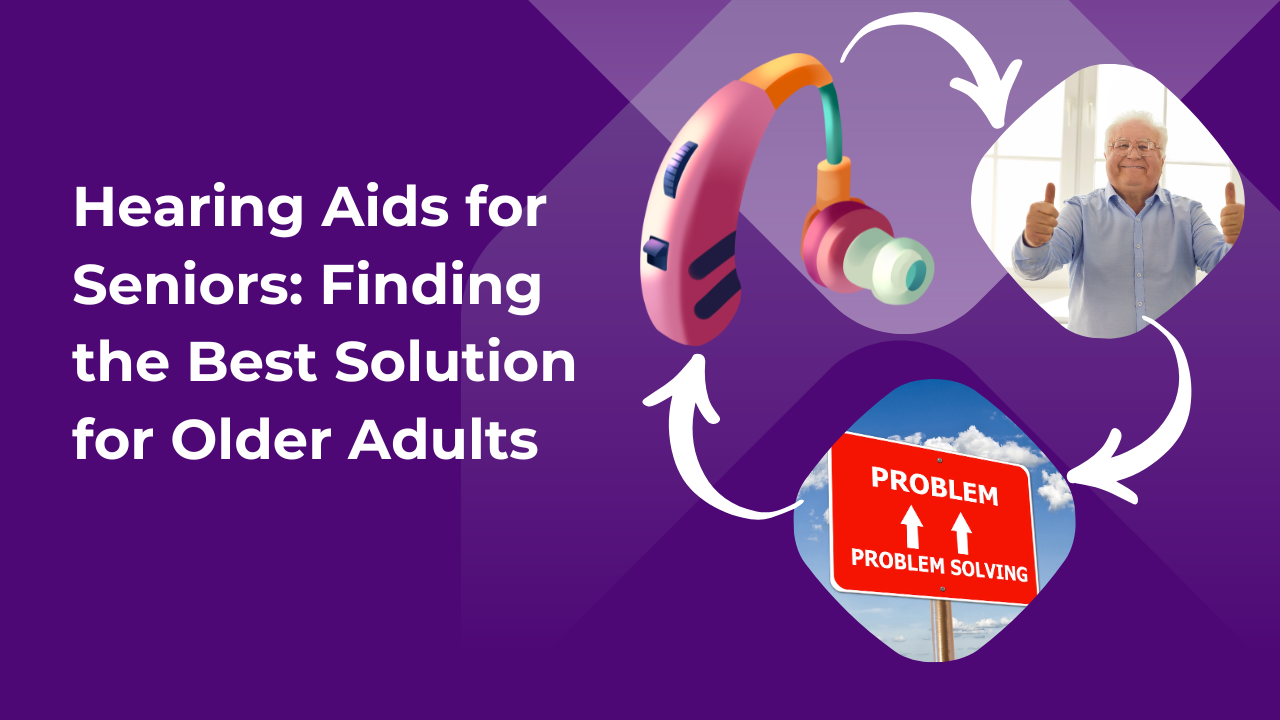Hearing loss is a common challenge as people age, affecting nearly one-third of adults over 65. Untreated, it can lead to isolation, reduced independence, and even cognitive decline. The good news is that today’s hearing aids offer advanced technology tailored to older adults’ needs—combining comfort, functionality, and ease of use.
This article will walk you through everything you need to know: from understanding age-related hearing loss to identifying the right hearing aid, considering costs, and making informed choices backed by real-world needs and performance—not just marketing claims.
What Is Age-Related Hearing Loss?
Age-related hearing loss, or presbycusis, develops gradually and typically affects both ears equally. It primarily involves the loss of high-frequency sounds, making conversations (especially in noisy environments) difficult to follow.
Example: A senior might hear the engine of a bus clearly but struggle to catch what their grandchild is saying at the dinner table.
It’s not just about volume—it’s about clarity. And that’s where hearing aids come in, by amplifying the frequencies that matter.
Why Do Seniors Need a Special Type of Hearing Aid?
Older adults often face:
- Reduced dexterity (making small devices harder to handle)
- Cognitive fatigue (requiring simplified functionality)
- Budget constraints (needing cost-effective yet efficient options)
Modern hearing aids account for these issues with features like:
- Larger buttons
- Rechargeable batteries
- Noise filtering
- Bluetooth connectivity
Let’s break it down by type and purpose.
Types of Hearing Aids Suitable for Seniors
1. Behind-the-Ear (BTE) Hearing Aids
Best for: Moderate to severe hearing loss
- Easy to handle
- Durable
- Compatible with Bluetooth and rechargeable batteries
2. In-the-Ear (ITE) Hearing Aids
Best for: Mild to severe hearing loss
- Custom-molded
- Easier to insert than smaller models
- Usually includes directional microphones
3. Receiver-in-Canal (RIC) Hearing Aids
Best for: Mild to moderate hearing loss
- Discreet
- Clearer sound quality
- Often includes Bluetooth and rechargeability
Note: Invisible options exist but may not be ideal for seniors due to size and battery handling difficulty.
Common Questions Answered
Which hearing aid is best for senior citizens?
There’s no one-size-fits-all. For ease of use and versatility, BTE models with rechargeable batteries and Bluetooth are often recommended. These are easier to wear, handle, and maintain.
What is the best hearing aid for old age?
Options with noise reduction, speech clarity, and automatic adjustments work best. Brands like Phonak, Oticon, and Signia have models specifically designed for seniors.
Are rechargeable hearing aids worth it for seniors?
Yes. Seniors benefit from not having to change tiny batteries. Rechargeable models last all day and are more environmentally friendly.
How much does a hearing aid machine cost in Mumbai?
Prices range widely—from INR 15,000 to over INR 3 lakhs—based on features. Rechargeable hearing aids and those with Bluetooth are priced higher. An audiologist or hearing clinic in Mumbai can provide personalized options.
How to Choose the Right Hearing Aid for Older Adults
Step 1: Schedule an Audiometry Test (especially in Mumbai)
Audiometry tests assess your hearing threshold. Clinics in Mumbai offer both government and private testing facilities. Always get a recent report before buying a hearing aid.
Step 2: Consider the Lifestyle of the User
- Home-bound vs. socially active
- Watching TV vs. outdoor interactions
- Smartphone use
Step 3: Assess Physical Needs
- Can the user handle small devices?
- Do they have arthritis or visual impairments?
Step 4: Check for Customization & After-Sales Service
Choose providers who offer aftercare, fitting adjustments, and battery replacement services in your area.
Cost and Availability in Mumbai
Hearing Aid Machine Price in Mumbai
- Basic analog models: INR 15,000–25,000
- Digital BTE models: INR 30,000–1,00,000
- Rechargeable & Bluetooth-enabled: INR 60,000–3,00,000
Audiometry Test in Mumbai
- Government Hospitals: Low-cost or free tests
- Private Clinics: INR 500–2,500 per session
Check reputed audiologists in Mumbai on Google Reviews or Practo before booking.
Rechargeable & Bluetooth Hearing Aids: Are They Worth It?
Pros
- No need to buy batteries
- Convenient overnight charging
- Smartphone compatibility
Cons
- Initial cost is higher
- Battery replacement after 3–5 years (by professional)
Popular Brands Available in Mumbai
- Phonak Audeo Life (Bluetooth, Rechargeable)
- Oticon More
- Signia Styletto
Key Takeaways
→ Age-related hearing loss is more about clarity than volume.
→ Behind-the-Ear (BTE) and Rechargeable models work best for seniors.
→ A hearing test (audiometry) is essential before choosing a device.
→ Look for after-sales service, especially in local areas like Mumbai.
→ Rechargeable and Bluetooth-enabled devices offer added comfort and tech integration.
→ Prices in Mumbai vary widely—compare features before deciding.
How Our Partner Audiologists Help Seniors
Certified audiologists in Mumbai guide you through each step—from audiometry testing to choosing the right model and offering ongoing support. Schedule a consultation today to experience personalized care that prioritizes your comfort, budget, and hearing needs.
External Resources
- Hearing Loss Association of America
- American Academy of Audiology
- National Institute on Deafness and Other Communication Disorders
Frequently Asked Questions (FAQ)
Q1: How long do hearing aids last?
Most hearing aids last 4–6 years. However, care, battery type, and usage patterns can influence their lifespan.
Q2: Is an audiometry test painful?
Not at all. It’s a simple test that involves listening to sounds through headphones and pressing a button when you hear them.
Q3: Can hearing aids improve speech clarity in noisy places?
Yes, most modern hearing aids have noise-canceling and directional microphones that help focus on the speaker’s voice.
Q4: Are there affordable options for pensioners in Mumbai?
Yes. Government hospitals and NGOs offer budget hearing aids. You can also check EMI options with private centers.
Q5: How often should seniors get their hearing checked?
Once a year is recommended. But if hearing changes suddenly or noticeably, consult an audiologist immediately.
Q6: Do Bluetooth hearing aids work with all smartphones?
Most new models are compatible with both Android and iOS devices. Always check device compatibility before purchase.





